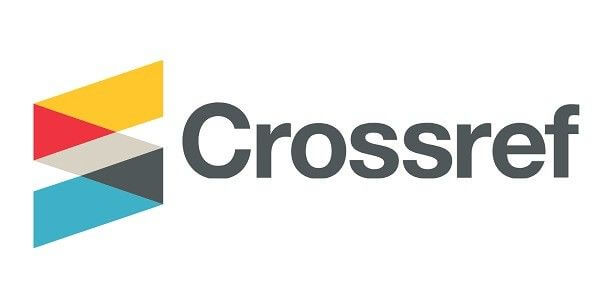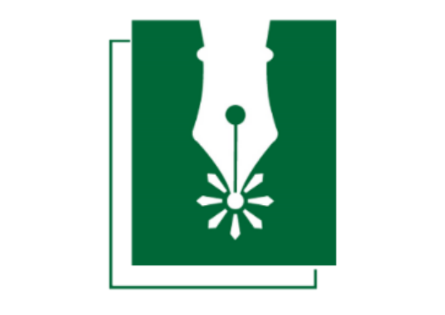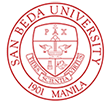Online self-regulated learning, academic performance, and well-being of Senior High School Students in the NCR: A mediation analysis
Keywords:
academic performance, mediation analysis, online selfregulated learning, well-beingAbstract
The Philippines abruptly shifted from traditional to emergency remote education in response to the threats brought about by the COVID-19 pandemic. Emergency remote education is an umbrella term to refer to online learning. Literature on traditional learning suggests that selfregulation correlates positively with well-being, which suggests that students who are autonomous in their learning activities tend to be satisfied with their lives. Research also suggests that academic performance mediates this relationship, which suggests that students tend to become satisfied with their lives when they achieve successful learning outcomes. This research explores the relationship between online self-regulation, academic performance, and well-being of 379 senior high school students from selected public and private schools who hold classes using the online learning modality in the National Capital Region (NCR) using a quantitative approach specifically the explanatory cross-sectional design. The participants completed the online survey on self-regulated learning and well-being (i.e., Online Self-Regulated Learning Questionnaire and Satisfaction With Life Scale), while their academic performance was based on their self-reported third quarter grade point average. Results showed that online self-regulated learning predicted well-being, however, academic performance did not mediate the positive relationship between online self-regulated learning and well-being. Our findings suggest that, in the context of online learning, senior high school students who regulate their learning may experience satisfaction with their lives even if they do not achieve academic success.
References
Appana, S. (2008). A review of benefits and limitations of online learning in the context of the student, the instructor, and the tenured faculty. International Journal of E-Learning, 7(1), 5–22.
Bailey, T. H., & Phillips, L. J. (2016). The influence of motivation and adaptation on students' subjective well-being, meaning in life, and academic performance. Higher Education Research and Development, 35(2), 201–216. https://doi.org/10.1080/07294360.2015.1087474
Bandura, A. (1991). Social cognitive theory of self-regulation. Organizational Behavior and Decision Process, 50, 248–287.
Barnard, L., Lan, W. Y., To, Y. M., Paton, V. O., & Lai, S. L. (2009). Measuring self-regulation in online and blended learning environments. Internet and Higher Education, 12(1), 1–6. https://doi.org/10.1016/j.iheduc.2008.10.005
Barnard, L., Paton, V., & Lan, W. (2008). Mediator in the relationship between online course perceptions with achievement. International Review of Research in Open and Distance Learning, 9(2), 1–11.
Bozkurt, A., Jung, I., Xiao, J., Vladimirschi, V., Schuwer, R., Egorov, G., … Paskevicius, M. (2020). A global outlook to the interruption of education due to COVID-19 pandemic: Navigating in a time of uncertainty and crisis. Asian Journal of Distance Education, 15(1), 1–126. https://doi.org/10.5281/zenodo.3878572
Demming, C. L., Jahn, S., & Boztug, Y. (2017). Conducting mediation analysis in marketing research. Marketing ZFP, 39(3), 76–98. https://doi.org/10.15358/0344-1369-2017-3-76
Diener, E., Emmons, R., Larsen, R., & Griffin, S. (1985). The satisfaction with life scale. Journal of Personality Assessment, 49(1), 71–75.
Firoozabadi, A., Uitdewilligen, S., & Zijlstra, F. R. H. (2018). Solving problems or seeing troubles? A day-level study on the consequences of thinking about work on recovery and well-being, and the moderating role of selfregulation. European Journal of Work and Organizational Psychology, 27(5), 629–641. https://doi.org/10.1080/1359432X.2018.1505720
Hayes, A. F. (2018). Mediation, moderation, and conditional process analysis: A regression-based approach (2nd ed.). New York: The Guilford Press.
Hofer, J., Busch, H., & Kartner, J. (2011). Self-regulation and well-being: The influence of identity and motives. European Journal of Personality, 25(3), 211–224.
Johnson, B. (2001). Toward a new classification of nonexperimental quantitative research. Educational Researcher, 30(2), 3–13. https://doi.org/10.3102/0013189X030002003
`Johnson, B., & Christensen, L. B. (2020). Educational research: quantitative, qualitative, and mixed approaches (6 ed.). SAGE Publications, Inc.
Li, J., Ye, H., Tang, Y., Zhou, Z., & Hu, X. (2018). What are the effects of selfregulation phases and strategies for Chinese students? A meta-analysis of two decades of research on the association between self-regulation and academic performance. Frontiers in Psychology, 9(DEC), 1–13. https://doi.org/10.3389/fpsyg.2018.02434
Morosanova, V. I., Fomina, T. G., & Bondarenko, I. N. (2021). The dynamics of the interrelationships between conscious self-regulation, psychological well-being and school-related subjective well-being in adolescents : A three-year cross-lagged panel study. Psychology in Russia: State of the Art, 14(3), 34–49.
Nima, A. Al, Cloninger, K. M., Persson, B. N., Sikström, S., & Garcia, D. (2020). Validation of subjective well-being measures using Item Response Theory. Frontiers in Psychology, 10(January), 1–33. https://doi.org/10.3389/fpsyg.2019.03036
Park, C. L., Edmondson, D., & Lee, J. (2012). Development of self-regulation abilities as predictors of psychological adjustment across the first year of college. Journal of Adult Development, 19(1), 40–49. https://doi.org/10.1007/s10804-011-9133-z
Pelikan, E. R., Lüftenegger, M., Holzer, J., Korlat, S., Spiel, C., & Schober, B. (2021). Learning during COVID-19: the role of self-regulated learning, motivation, and procrastination for perceived competence. Zeitschrift Fur Erziehungswissenschaft, 24(2), 393–418. https://doi.org/10.1007/s11618-021-01002-x
Popescu, E. F., Tătucu, M., & Dobromirescu, V. (2021). Students ’ well-being in online education in Covid-19 context. International Journal of Educational and Research, 9(2), 1–10.
Rotas, E. E., & Cahapay, M. B. (2020). Difficulties in Remote Learning: Voices of Philippine University Students in the Wake of COVID-19 Crisis. Asian Journal of Distance Education, 15(2), 147–158. Retrieved from keywords: difficulties, remote learning, university students, COVID-19 crisis, Philippines
Sanchez, E., & Buddin, R. (2016). How accurate are self-reported high school courses, course grades, and grade point average? (ACT research report series 2016 [3]). 2016(3). http://www.act.org/content/dam/act/unsecured/documents/5269-research-report-how-accurate-are-selfreported-hs-courses.pdf
Sheldon, K. M., & Kasser, T. (1998). Pursuing personal goals: Skills enable progress, but not all progress is beneficial. Personality and Social Psychology Bulletin, 24(12), 1319–1331.
Tian, L., Wang, D., & Huebner, E. S. (2015). Development and validation of the brief adolescents’ subjective well-being in school scale (BASWBSS). Social Indicators Research, 120(2), 615–634. https://doi.org/10.1007/s11205-014-0603-0
Wang, H., Yang, J., & Li, P. (2021). How and when goal-oriented self-regulation improves college students’ well-being: A weekly diary study. Current Psychology. https://doi.org/10.1007/s12144-020-01288-w
Widodo, A., Nursaptini, N., Novitasari, S., Sutisna, D., & Umar, U. (2020). From face-to-face learning to web base learning: How are student readiness? Premiere Educandum : Jurnal Pendidikan Dasar Dan Pembelajaran, 10(2), 149. https://doi.org/10.25273/pe.v10i2.6801
- PDF | 621
- Abstract Views | 3175
Published
How to Cite
Issue
Section
Copyright (c) 2023 Alvin Nieva , Josephine Prudente

This work is licensed under a Creative Commons Attribution-NonCommercial-NoDerivatives 4.0 International License.











